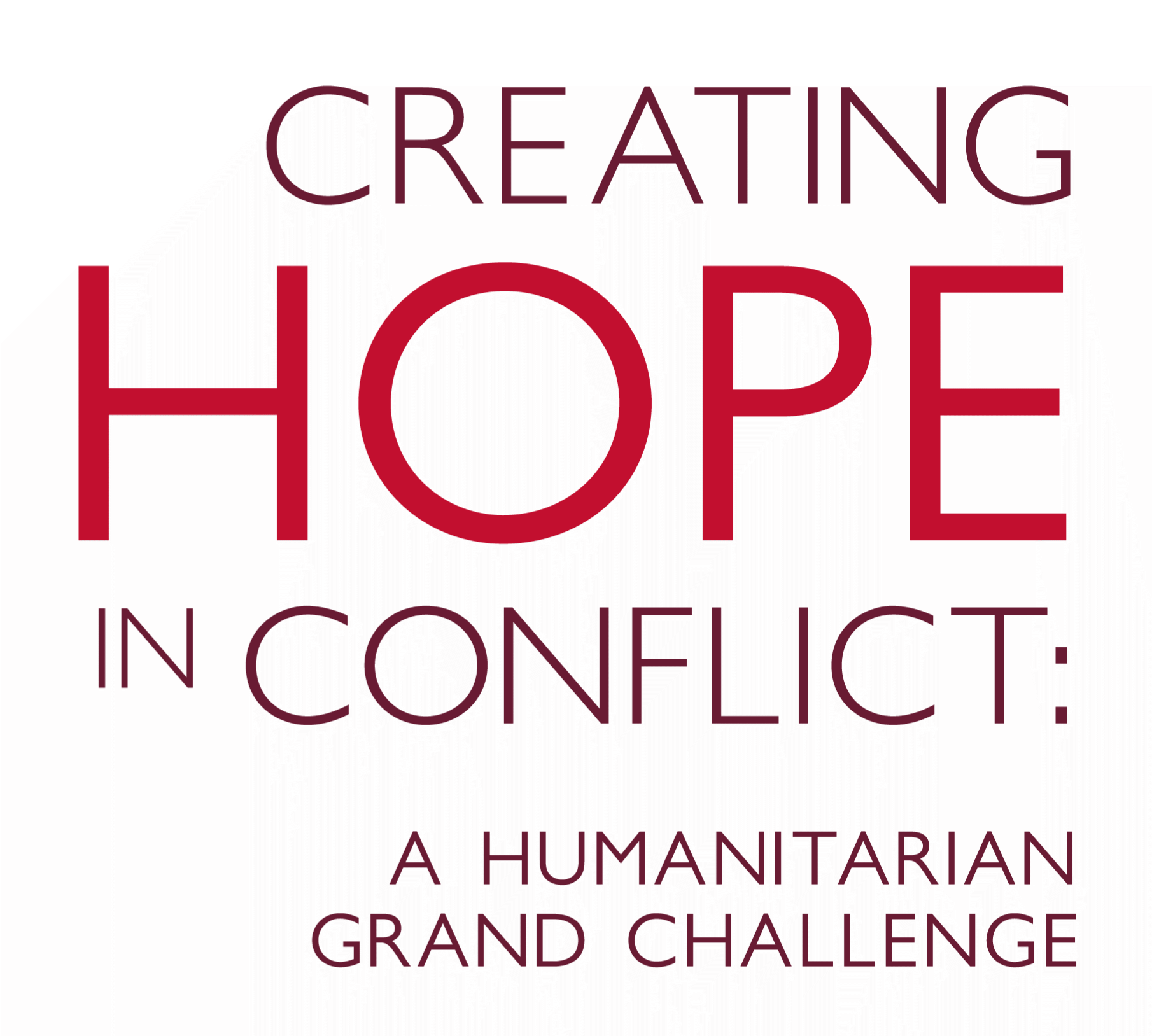This blog is the third, and final, in a three part series on conflict, climate, and water. If you have not yet read the first two parts, please read them here. Throughout the series, we have explored the work of Creating Hope in Conflict: a Humanitarian Grand Challenge supported innovation, the Rainmaker Enterprise.
Every minute, over 20 people are forced to flee their homes in search of water, food, and safety. Water scarcity is contributing to the displacement of millions of people through water conflicts and environmental conditions, including drought. For the millions presently forced to flee from hunger and resource driven conflicts, Rainmaker Enterprise is working to make migration a choice and not a last resort.

A child collects water from the Rainmaker well in Tonj, South Sudan. Photo: Jean-Luc Habimana
Sustainable water management is key to unlocking the vast potential of agriculture for stability, recovery and development in South Sudan. Finding sustainable paths for agriculture and pastoralism can support the livelihoods of millions of people, build socioeconomic development and food security, reduce tensions over scarce resources, and enable the population to adapt to climate change and take climate action. More broadly, agricultural production is both a major cause and casualty of water scarcity. Over 70 percent of freshwater worldwide is used in agriculture.
In off-grid areas dominated by smallholder farming production, which remains responsible for the majority of our global food production, solar-powered water pumping and drip-irrigation is a promising solution to climate change, water scarcity and food insecurity. Solar-powered irrigation saves water, mitigates environmental degradation, develops green infrastructure, and enables sustainable growth.
By building holistic and integrated solutions, Rainmaker goes beyond adapting to climate change and seeks to empower people to lead carbon sequestration and the implementation of natural climate solutions. The practice of regenerative agriculture – including the use of organic manure, crop rotation, intercropping, and planned holistic grazing – restores ecosystem and soil health. Healthy soil stores more carbon and produces more food. With the right tools, Rainmaker envisions its farmers at the forefront of meeting growing global food demands while drawing down global sources of carbon emissions, improving food systems and regenerating fragile ecosystems.
Addressing global challenges together
With humanitarian needs increasing worldwide and record numbers of people on the move, grassroots solutions that empower vulnerable people to support themselves are critical. These solutions are intimately linked with climate adaptation.

Women at Rainmaker’s well in Tonj, South Sudan. Photo: Jean-Luc Habimana
Grassroots solutions are key for reaching the hardest to reach impacted by conflict and climate change. Only 45% of affected populations across 7 different conflict zones felt that humanitarian aid is reaching the most vulnerable. This is in contrast to 90% of aid workers who feel they are effectively reaching those most in need. This highlights a gap that must be addressed.
With growing needs, and a dynamic, fast-changing landscape, the humanitarian sector must innovate its approach to reaching the most vulnerable with emergency aid delivery. This includes partnering with and supporting locally-driven and led innovations that are finding new ways of getting life-saving and life-improving resources to society’s most vulnerable.
As part of the humanitarian system, it is for this reason that Creating Hope in Conflict: A Humanitarian Grand Challenge is proud to support The Rainmaker Enterprise’s work building local water access and management systems. By generating productive opportunities for vulnerable people, including the youth who sustain wars as child soldiers, Rainmaker’s projects invest in life-saving solutions that alleviate humanitarian crisis, overcome aid dependency, revive critical resources, and lay down the foundations for lasting peace and climate resilience. By being embedded within its partner communities, Rainmaker can effectively navigate the rapidly changing needs of affected populations, ultimately contributing to changing the landscape of resource delivery in humanitarian settings.
World Water Day and call to action
The 2020 World Water Day focuses on Water and Climate Change. Experts state: “Action plans to tackle climate change need to be integrated across different sectors and coordinated across borders. And they must have one thing in common: safe and sustainable water management.” Rainmaker’s solution aligns with this approach.
It has been estimated that all Sub-Saharan African countries will face a form of water scarcity by 2025, and that two-thirds of the world’s population at large may face water shortages by 2025. Given the conflict and insecurity risks associated with these trends, it is critical to support sustainable water solutions that build community food security and stability.
Conflict and climate change forced one man to flee his home, yet this created the conditions that led to the founding of The Rainmaker Enterprise. Such is the story of innovation. In the face of systemic global challenges such as water scarcity and climate change, we are called to identify the resources and opportunities that exist around each of us to make a difference.
As Rainmaker continues its work supporting vulnerable people impacted by conflict and climate change, the organization seeks partnership across the humanitarian, public and private sectors to expand its impact and respond to climate change.
Learn how you can get involved.
